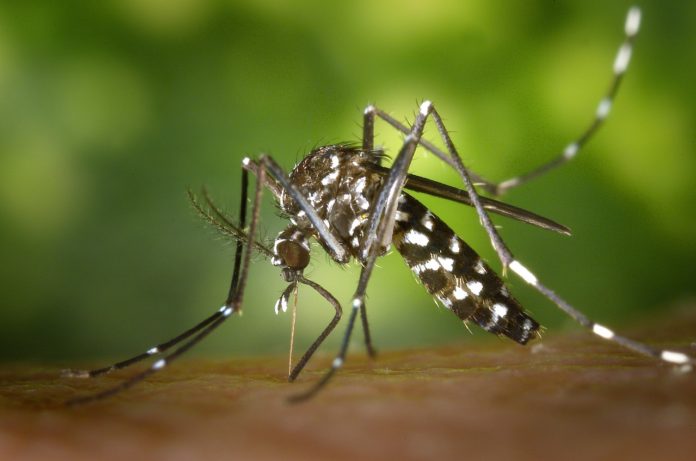The warm weather means not only sunshine, ice creams and cold drinks. Also, stings from horseflies, mosquitoes and other ‘flying beasts’! What can we do to prevent it? And what’s the best thing to do if we’re stung? Forest ranger Frans Kapteijns reveals some remedies for the itch.
Horseflies and mosquitoes
“Most of the trouble is now from raindrops and mosquitoes,” says Kapteijns. Especially if a horse fly grazes, you certainly feel that. “Especially the females bite. They inject a kind of stuff into the wound that keeps it from clotting, which causes the itchy feeling.”
Itch or not, Kapteijns’ advice sometimes sounds easier than done: “Whatever we do, don’t scratch! Scratching makes it worse.”
“Once bitten is bitten, you don’t do much about it,” Kapteijns says matter-of-factly. If you’re quick, you could still suck out the poison. It could also cool with a wet cloth or ice to possibly relieve it.
Wasps and bees
Only the female wasps sting. They do this with their so-called needle angel that has no barbs. Therefore does not remain in the skin. When a bee stings, a barb is usually present in the affected place. Remove it as soon as possible. This prevents a lot of poison from getting into or under your skin. Do not do this with your fingers. Instead, ‘scrape’ the sting out of the skin with some object. For example, an edge of a bank card, the blunt side of a knife or tweezers. Sucking out the poison is not recommended. It destroys the skin around the sting more.
Often not our own fault, but we are left with a bump, itching or pain. According to Kapteijns, cream or ointment can already provide relief. If the sting still hurts, we can cool it with a wet cloth or ice. It reduces the chance of a thick bump. You can also take two more tablets of paracetamol.
How to prevent it
Now, it’s the horseflies and mosquitoes, but later in the season, the wasps will trouble too. The best thing is, of course, prevention. Fortunately, there are also a number of things you can do to avoid getting stung:
- Kapteijns himself always goes out with an insect spray, but insect-resistant scented candles can also help.
- Dazes and mosquitoes love moist, and balmy sun spots such as along the water. It’s best to try to avoid them.
- Keep sweet drinks and food covered.
- Also, try to leave wasps or bees alone as much as possible. It can be tempting to want to hand out a big pet, but this increases the chance of a sting.
- Don’t panic. If you are in a place with a lot of insects, walk away quietly. You only invite more trouble with a ruckus.
“Once bitten is bitten, you don’t do much about it anymore,” Kapteijns concludes. “Of course, you should always call the doctor if you have more severe complaints.”
Source: Omroep Brabant
Translated by: Shanthi Ramani
















